The AEA's 2018 Continuing Education Program will be held at the Sheraton Philadelphia Downtown on January 7-9, 2018, immediately following the close of ASSA. Participants can choose from three concurrent programs.
Registration now open. (Alternatively, download
PDF Registration form.)
Matching Market Design
Atila Abdulkadiroglu (Duke University)
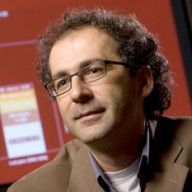
Atila Abdulkadiroglu joined the Department of Economics at Duke University in the Fall of 2006. He taught at Northwestern University and Columbia University before coming to Duke. He received his PhD in Economics at the University of Rochester. His research has led to the design and implementation of better admissions policies in school choice programs in the US, He has consulted several school districts in redesigning student assignment systems, including Boston (MA), Chicago (Il), Denver (CO), New Orleans (LA), New York City (NY). His current research also focuses on economics of education. He is a recipient of an Alfred P. Sloan Research Fellowship and a National Science Foundation CAREER award. Abdulkadiroglu serves as an Editor-in-Chief of Review of Economic Design. He serves on the board of The Institute for Innovation in Public School Choice.
Nikhil Agarwal (MIT)
Nikhil Agarwal is the Castle Krob Career Development Assistant Professor of Economics at Massachusetts Institute of Technology, where he has been teaching since 2014. He completed his PhD in Economics at Harvard University in 2013, and was a Postdoctoral Associate at the Cowles Foundation for Research in Economics at Yale University. Agarwal specializes in the empirical study of matching markets. He has developed tools that have been applied to labor markets, education markets and organ allocation systems.
Parag Pathak (MIT)
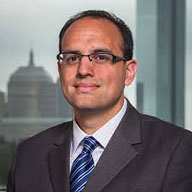
Parag A. Pathak is the Jane Berkowitz Carlton and Dennis William Carlton Professor of Microeconomics at MIT, founding co-director of the NBER Working Group on Market Design, and founder of MIT's School Effectiveness and Inequality Initiative (SEII), a laboratory focused on education, human capital, and the income distribution. Pathak has helped to design the Boston, Chicago, Denver, Newark, New Orleans, New York, and Washington DC school choice systems. His work on market design and education was garnered numerous recognitions including a Presidential Early Career Award for Scientists and Engineers and the 2016 Social Choice and Welfare prize. He has also authored leading studies on charter schools, high school reform, selective education, and school vouchers. Pathak is a Fellow of the Econometric Society, and has served on the editorial boards of
Econometrica,
American Economic Review, and the
Journal of Political Economy.
Machine Learning and Econometrics
Susan Athey (Stanford University)
Susan Athey is the Economics of Technology Professor at Stanford Graduate School of Business. She received her bachelor’s degree from Duke University and her PhD from Stanford, and she holds an honorary doctorate from Duke University. She previously taught at the economics departments at MIT, Stanford and Harvard. Her current research focuses on the economics of digitization, marketplace design, and the intersection of econometrics and machine learning. She has worked on several application areas, including timber auctions, internet search, online advertising, the news media, and virtual currency. As one of the first “tech economists,” she served as consulting chief economist for Microsoft Corporation for six years, and now serves on the boards of Expedia, Rover, and Ripple. She also serves as a long-term advisor to the British Columbia Ministry of Forests, helping architect and implement their auction-based pricing system.
Guido Imbens (Stanford University)
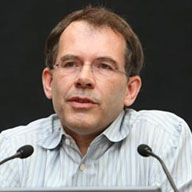
Guido Imbens is Professor of Economics at the Stanford Graduate School of Business. After graduating from Brown University Guido taught at Harvard University, UCLA, and UC Berkeley. He joined the GSB in 2012. Imbens specializes in econometrics, and in particular methods for drawing causal inferences. Guido Imbens is a fellow of the Econometric Society and the American Academy of Arts and Sciences. Guido Imbens has taught in the continuing education program previously in 2009 and 2012.
DSGE Models and the Role of Finance
Lawrence Christiano (Northwestern University)
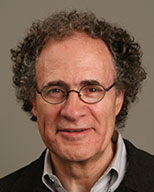
Larry Christiano's research has been focused primarily on the problem of determining how the government's monetary and fiscal instruments ought to respond to shocks over the business cycle. This research has two parts: one involves formulating and estimating an empirically plausible model of the macroeconomy, and the second involves developing economic concepts and computational methods for determining optimal policy in an equilibrium model. He is a Fellow of the Econometric Society, and a research associate of the National Bureau of Economic Research.
Thomas Philippon (New York University)
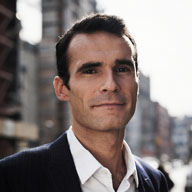
Thomas Philippon is Professor of Finance at New York University - Stern School of Business. Philippon was named one of the “top 25 economists under 45” by the IMF in 2014, he won the 2013 Bernácer Prize for Best European Economist under 40, the 2010 Michael Brennan & BlackRock Award, the 2009 Prize for Best Young French Economist, and the 2008 Brattle Prize for the best paper in Corporate Finance. He was elected Global Economic Fellow in 2009 by the Kiel Institute for the World Economy. He has studied various topics in finance and macroeconomics: financial distress, systemic risk, government interventions during financial crises, asset markets and corporate investment. Recently his work has focused on the evolution of the financial system and on the Eurozone crisis. He currently serves on the Monetary Policy Advisory Panel of the NY Federal Reserve Bank, and as a board member and director of the scientific committee of the French prudential regulator (ACPR). He was the senior economic advisor to the French finance minister in 2012-2013. Philippon graduated from Ecole Polytechnique, received a PhD in Economics from MIT, and joined New York University in 2003.



No comments:
Post a Comment